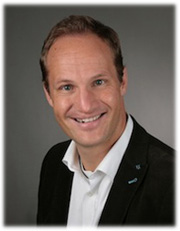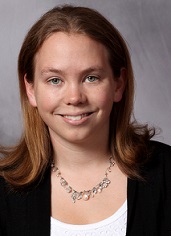In Cooperation
with IACR
FIFTEENTH IMA INTERNATIONAL CONFERENCE ON CRYPTOGRAPHY AND CODING
15th - 17th December 2015, St. Catherine's College, University of Oxford, UK

INVITED SPEAKERS
| Sihem Mesnager | Bent functions and their connections to coding theory and cryptography | |
 |
Abstract: Boolean functions are important objects in discrete
mathematics. They
play a role in mathematics and in many domains of
computer science. We will be mainly interested in their
relationships with error correcting codes and private-key cryptography. The talk is devoted to special families of Boolean functions which are viewed as important objects in combinatorics and the information theory framework (namely, cryptography and coding theory) : the so-called bent functions. Bent functions are maximally nonlinear Boolean functions. They are wonderful creatures introduced by O. Rothaus in the 1960's and initially studied by J. Dillon since 1974. For their own sake as interesting combinatorial objects, but also for their relations to coding theory (e.g. Reed-Muller codes, Kerdock codes, etc.), combinatorics (e.g. difference sets), design theory, sequence theory, and applications in cryptography (design of stream ciphers and of S-boxes for block ciphers), they have attracted a lot of research for four decades. We give a survey of the main results in bent functions, present an overview of their generalizations, variations and applications. We also present a construction of a new family of bent functions whose existence is based on an arithmetical problem. We shall discuss the existence of such bent functions using Fermat hypersurface and Lang-Weil estimations. |
| Alexander May | Recent Advances in Decoding Binary Linear Codes and their Implication for Cryptography | |
 |
Abstract: We will present the algorithms of May, Meurer, Thomae (Asiacrypt 11), Becker, Joux, May, Meurer (Eurocrypt 12) and May, Ozerov (Eurocrypt
15) and discuss their implications for the parameter choice of coding-based schemes like McEliece
Bio: Alexander May is a full professor for Cryptology and IT-Security at Ruhr University Bochum since 2007. He has been director of the Horst-Goertz Institute for IT Security and currently heads the DFG Research Training Group Ubicrypt. |
| Allison Bishop | Steps Towards a Unified Coding Theory for Distributed Algorithms | |
 |
|
| Daniel Wichs | Tamper Detection and Non-malleable codes | |
 | Abstract: In this talk, we consider a public and keyless code which is used to encode a message and derive a codeword. The codeword can be adversarially tampered via a function from some restricted family of "tampering functions". We study the different types of security guarantees that can be achieved in this scenario for various tampering families. Firstly, we will consider tamper-detection codes, which must detect that a tampering occurred with overwhelming probability. Next, we will study a relaxation of tamper-detection called non-malleable codes, which require that a tampered codeword either decodes to the original message m, or to some unrelated value that doesn't provide any information about m. Finally, we study continuous non-malleable codes, which provide the non-malleability guarantee against an attacker that can tamper a codeword multiple times. Bio: Daniel Wichs is an assistant professor of computer science at Northeastern University. Prior to joining Northeastern, he was a postdoctoral researcher at the IBM T.J. Watson Research Center (2011-2013) supported by the Josef Raviv Memorial Fellowship. He received his PhD in computer science from New York University in 2011 and a MS in computer science and a BS in mathematics from Stanford University in 2005. Professor Wichs does research on all aspects of modern cryptography, including its theoretical foundations and its applications to information security. His recent research relates to the cryptographic challenges involved in outsourcing data and computation to the cloud. |